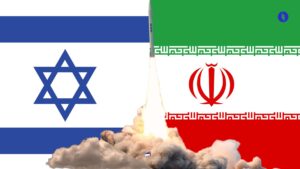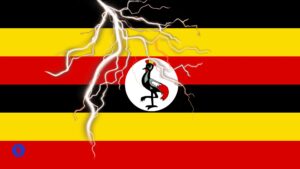G7 foreign ministers (🇪🇺, 🇯🇵, 🇬🇧, 🇫🇷, 🇨🇦, 🇺🇸, 🇩🇪, 🇮🇹) just gathered in Canada’s beautiful river resort town of La Malbaie and ended up producing a veeeeery intriguing statement.
While these kinds of joint documents can be incredibly, remarkably, truly impressively dull, there are often spicy bits lurking within if you know where and how to look.
So… here are your top four quotes:
Stay on top of your world from inside your inbox.
Subscribe for free today and receive way much more insights.
Trusted by 129,000+ subscribers
No spam. No noise. Unsubscribe any time.
- “We remain concerned with […] the rapid increase in China’s nuclear weapons arsenal“
One reason why negotiations dragged on through the night was because the US wanted tougher language on China, like the line above. The latest G7 statement also adopts last month’s new US-Japan language, directly dunking on China’s “coercion” of others like Taiwan (which labelled China a “foreign hostile force” last week).
This latest G7 statement also ditches old G7 language, including traditional reassurances for China that there’s been no change to any G7 ‘One-China’ policies. Skipping those assurances will have spooked Beijing, because China’s modern ties with the West are based on capitals agreeing there’s only one China (though the West stops short of endorsing Beijing’s claims over Taiwan — check out our explainer). So no surprises here, but both China’s embassy in Canada and state media have railed at the G7 statement.
Meanwhile, folks in the Middle East and elsewhere have focussed on…
- “A two-state solution, with Israel and a sovereign Palestinian state living side by side in peace and mutual safety“
The thing about the above line is it’s not in the latest G7 — it’s from November. This time around, rather than a two-state solution (often seen as a precondition for peace), the G7 ministers agreed on the need for “a political horizon for the Palestinian people“.
This new US-pushed language reflects what we’ve already seen out of Trump 2.0. But interestingly, while Palestinian leaders have pushed back, so have some Israeli hardliners, noting that this latest G7 statement also a) calls for resumed aid into Gaza (after Trump backed Israel’s aid halt as a way to pressure Hamas), and b) flags concern over hostilities in the West Bank (just after Trump lifted sanctions on Israeli settlers there).
US diplomats have said these edits reflect not so much any softening in Trump’s position, but rather standard horse-trading over other issues in the G7 statement, like…
- “G7 members reaffirmed their unwavering support for Ukraine in defending its territorial integrity and right to exist“
This is a standard G7 line, but America’s top envoy Marco Rubio made clear he’d block anything that complicates US efforts to bring Russia to the negotiating table.
Against that backdrop, plus Trump’s idea that Putin should even re-join the broader G8 (he got booted after invading Crimea in 2014), it’s interesting such a pro-Ukraine line plus warnings of more sanctions against Putin made the cut. It might be because the broader text doesn’t really directly criticise Russia, and offers Ukraine only vague “assurances” rather than any meaningful security guarantees.
And speaking of assurances…
- “The president has made his argument as to why he thinks Canada would be better off joining the United States“
Rubio is now the most senior US official to visit Canada since Trump 2.0 slapped the US ally with tariffs and started musing about it becoming the 51st state. That’s raw timing to visit a neighbour bubbling with outrage and betrayal. So how did Rubio play this one?
- In the above TV quote, he seemingly tried to reframe Trump’s ‘51st state‘ rhetoric as a hypotheticalrather than a threat
- He also deflected media questions about Trump’s threats to rip up a US-Canada border treaty, noting flatly that the topic wasn’t on the G7 agenda, and
- He also skipped the usual G7 social activities (marshmallow sandwiches this time!), presumably to avoid more of the same questions.
Still, his Canadian counterpart (Mélanie Joly) didn’t hold back reiterating in public what she reportedly told Rubio in private: “Canada’s sovereignty is not up for debate.“
INTRIGUE’S TAKE
This line from US historian Stephen Kotkin caught our eye recently:
“Trump plays good cop with all your strongmen… and he then has his staff play bad cop with them; and he plays bad cop with all of our allies… and he has his staff play good cop with them.“
In that context, allies at the G7 have quietly described Rubio as a “good guy“, no doubt hoping he manages to maintain a private (if any) moderating influence on Trump.
But Rubio is now at the centre of a historic balancing act here between:
- a) providing assurances to US allies without drawing the ire of his boss, and
- b) enticing Putin to negotiate without torching US allies.
Anyway, with a US president openly musing about taking turf from two G7 members (Canada, plus Greenland via the EU’s Denmark), it’s kinda noteworthy the G7 can still agree on much at all. But the alternative — a failure to produce any statement among long-time allies — would’ve been a historic gift to rivals everywhere.
Also worth noting:
- The statement also reiterates G7 views on Iran, North Korea, Myanmar, Syria, Lebanon, Haiti, Venezuela, Sudan, and DRC/Rwanda.
- Canada holds the G7 presidency this year and is set to host G7 leaders (including Trump) in the Rockies this June.







